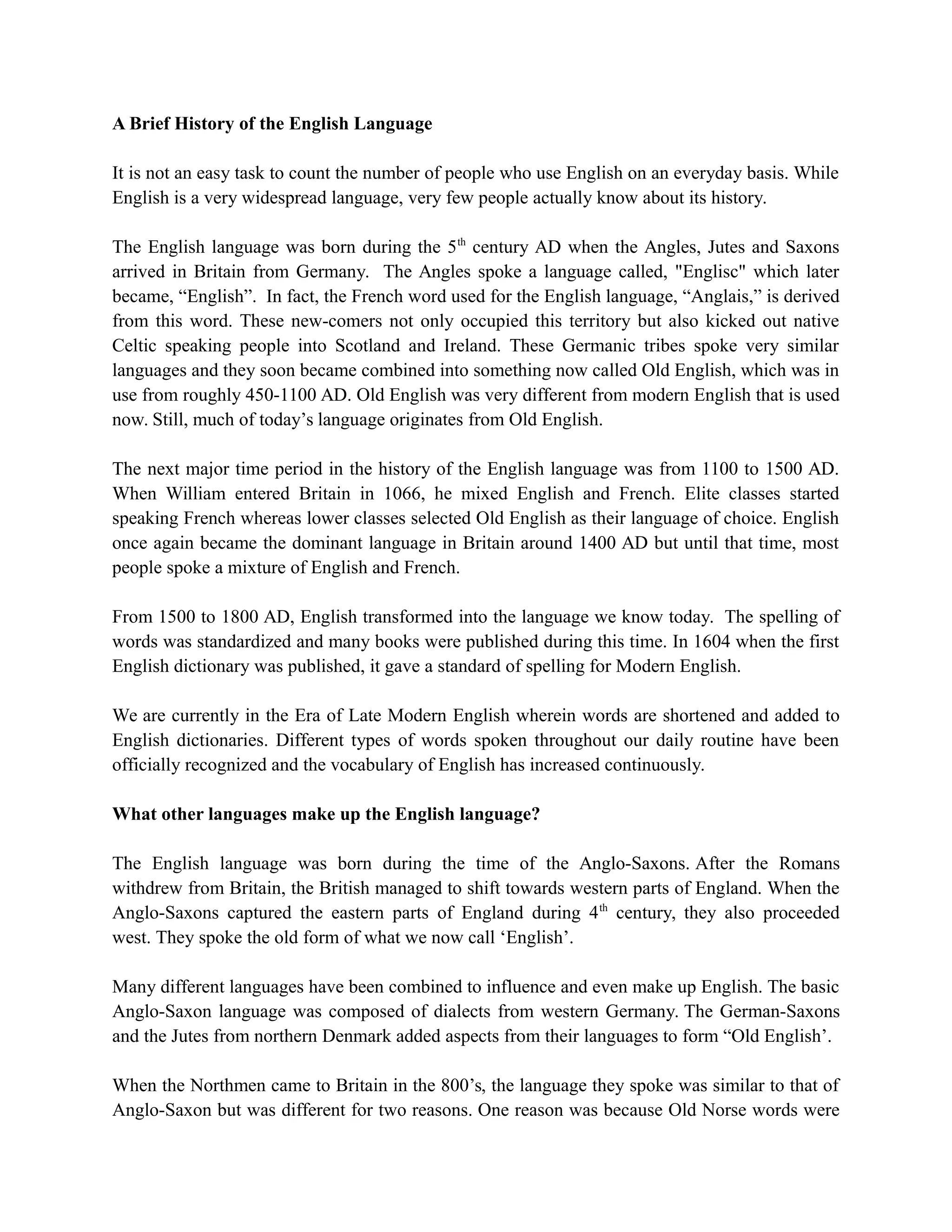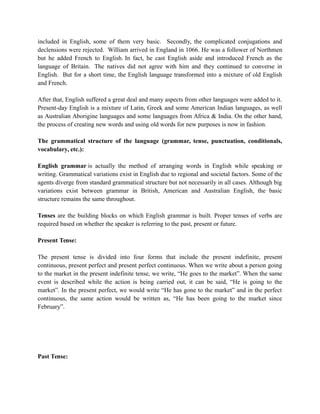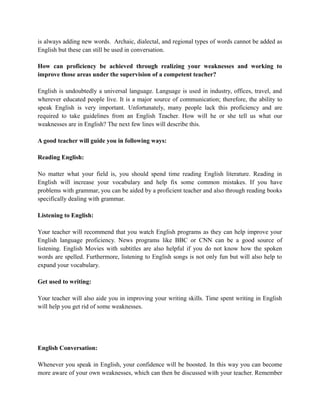The document provides a brief history of the English language from its origins with the Angles, Jutes, and Saxons in the 5th century AD to its current status. It discusses how Old English evolved and was influenced by French and other languages. The grammar, tenses, punctuation and ongoing growth of vocabulary in English are also summarized. Key events like the Norman conquest in 1066 and the standardization of spelling in the 16th century that shaped the modern English language are highlighted.


![The past tense also has four parts with the same names, just with past replacing present. If the
same actions occurred in the past, they would be written as, “He went to the market”, “He was
going to the market”, “He had gone to the market” and “He had been going to the market for last
five weeks”.
Future Tense:
Something expected to happen in future can be written as, “He will go to the market”, “He will
be going to the market”, “He will have gone to the market” and “He will have been going to the
market for two days”.
Conditional Tenses:
The status of the conditional mood in English is similar to that of the future tense. Conditionals
are based on specific situations or circumstances. Conditionals are written so that if a condition
is true, then the expected result will occur. Examples of the four main conditionals are, “If he
goes to the market, he buys bread,” “If he needs more bread, he will go to the market,” “If he
needed bread, he would go to the market,” and, “If he had gone to the market earlier, he wouldn’t
have needed to get bread now.”
Punctuation:
Different types of punctuation are used to write English properly.
The following are some examples:
The Apostrophe is used where and object is owned or possessed by someone, i.e. David’s Pen.
Brackets like ([ ], ( ), { }, ) are used for explaining and commenting on things like:⟨ ⟩ Alexander
(the younger)..." Colon and semi-colon are written where an enumeration is initiated. The semi-
colon ( ; ) is often used to break up listings with commas: "We saw a group of people: Mark, who
was leading them and Nelson, the carpenter was also with them; all the others were unknown to
us."
Commas are applied to separate sentences for the purpose of explanation; i.e. He, despite
wearing a coat, was still very cold. Other important punctuations are a period (.) used at the end
of sentence, a question mark (?) used at the end of a question, and a slash (/) used to show that
the words written on either side of it can be used.
Vocabulary
It is not easy to estimate the amount of words in the English language. This is an issue of
definition rather than accounting. One reason this is so difficult is because the English language](https://image.slidesharecdn.com/englishhistorypdf-140604104101-phpapp01/85/English-history-pdf-3-320.jpg)

